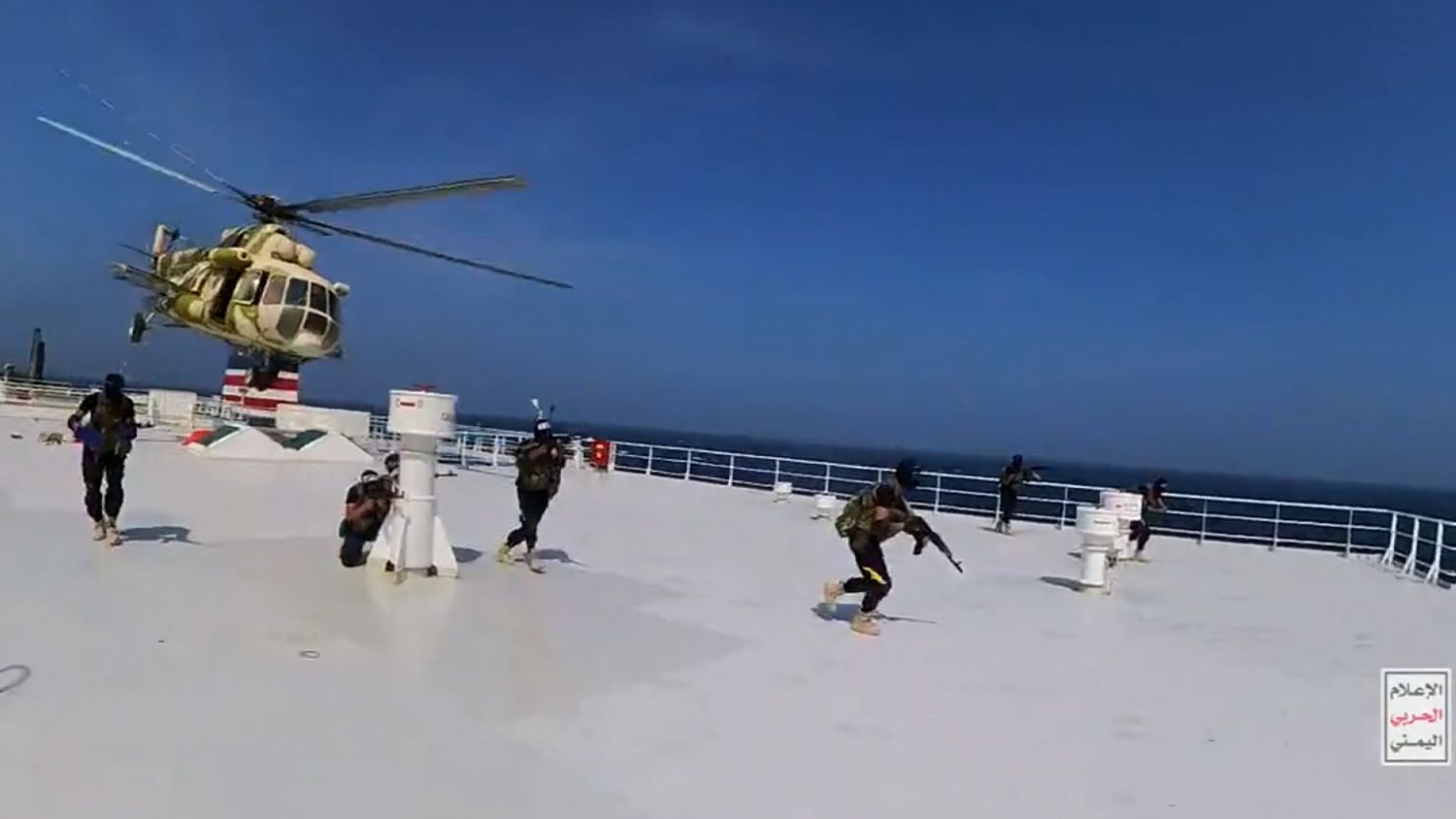The US on Friday released newly declassified intelligence that suggests Iran has been “deeply involved in planning the operations against commercial vessels in the Red Sea,” National Security Council spokesperson Adrienne Watson told CNN.
The Iran-backed Houthi rebels have launched more than 100 attacks against about a dozen commercial and merchant ships transiting the Red Sea over the past four weeks, CNN previously reported. The newly declassified intelligence suggests that “Iranian support throughout the Gaza crisis has enabled the Houthis to launch attacks against Israel and maritime targets, though Iran has often deferred operational decision-making authority to the Houthis,” Watson said.
On Tuesday, a senior US military official said the Iranians are operating in the Red Sea when asked whether Iran is helping the Houthis select targets. But that official said the Houthi attacks have been broadly indiscriminate.
“Iran has the choice to provide or withhold this support, without which the Houthis would struggle to effectively track and strike commercial vessels navigating shipping lanes through the Red Sea and Gulf of Aden,” Watson said.
The intelligence also suggests that the Iranians have provided monitoring systems to the Houthis that allows them to operate in the maritime space, Watson said.
“Iranian-provided tactical intelligence has been critical in enabling Houthi targeting of maritime vessels since the group commenced attacks in November,” she added.
The drones and missiles the Houthis have been using for the attacks were also provided by Iran, Watson said, as part of Iran’s arming of the rebel group since 2015.
The US this week launched Operation Prosperity Guardian, a maritime coalition aimed at beefing up security in the southern Red Sea. More than 20 nations have signed on to the initiative so far, the Pentagon said Thursday.
The “very significant breadth of attacks” on commercial ships in the Red Sea have escalated to a level not seen in at least “two generations,” a senior US military official said Tuesday.
The official described the attacks, which the Iran-backed Houthis have launched using ballistic missiles and drones, as a “large change in the security environment than even what it was two months ago.”
The Red Sea is home to one of the most important maritime trade routes in the world, and the attacks have had far-reaching reverberations, with at least 44 countries having connections to vessels attacked by the Houthis, and wider international trade being disrupted.
The attacks have escalated since the beginning of the war between Israel and Hamas, sparked by the October 7 terrorist attack that killed about 1,200 in Israel. As Israel ramped up its retaliation for the attack, the Houthis began targeting ships that it accused of supporting Israel’s war effort, though multiple companies that have been targeted have said they have no connection with Israel or the war.
Some of the world’s biggest companies, including oil giant BP and shipping company Maersk, announced they were suspending their operations in the Red Sea because of the continued attacks on the vessels in recent weeks. Oil and gas prices rose sharply after BP’s announcement.
The Houthis, one side of Yemen’s brutal, decade-long civil war, have said their attacks are retribution for Israel’s military campaign against Gaza. Not all ships targeted by the group are believed to have direct connections to Israel, however.
The Houthis have made incremental updates to their weaponry and firepower, and have targeted commercial ships using drones and anti-ship missiles.
A Houthi spokesperson told Al Jazeera earlier this week that the group would confront any US-led coalition in the Red Sea.
This story has been updated with additional reporting.
CNN’s Michael Williams contributed to this report.

